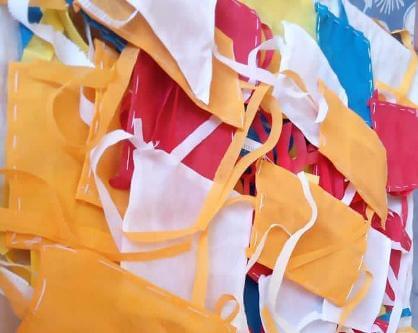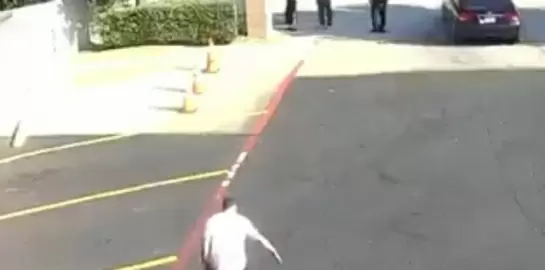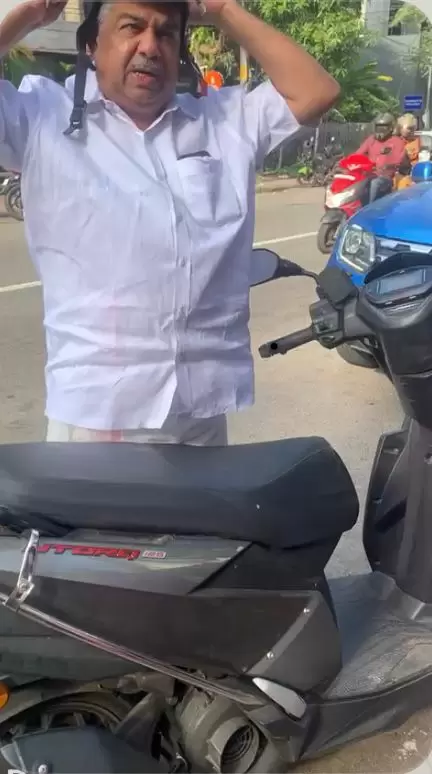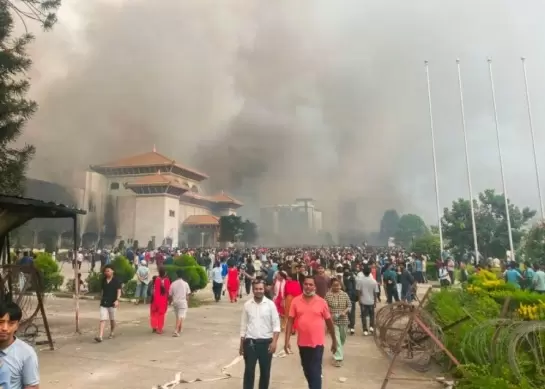Dumped masks at Delhi's Vasant Kunj to Maharashtra's Bhiwandi has govt worried
16-April-2020

Early this month in a Rohingya camp near the national capital's Vasant Kunj, mounds of medical waste were found. Contaminated masks, used syringes and worn gloves strewn all across the camp site, just across the upscale area.
Upon preliminary enquiry, it was established that many Rohingya residents of the camp who work as medical waste pickers dumped it there, exposing it to not just those who live there but also residents of Vasant Kunj, even as India's COVID-19 cases were slowly peaking up.
Vasant Kunj was not the only place. As India made it mandatory to wear a mask if one wishes to step out, just after Prime Minister Narendra Modi announced an extension of the pan-India lockdown, there has been a surge of buying, wearing and dumping of masks, most of which are for one-time use and throw kind.
In early March in a shocking case, more than a lakh masks were found dumped in Bhiwandi area, barely 35 kilometers from cosmopolitan Mumbai. They were dumped near a water pipeline and discovered by officials. However it remained uncertain whether they were used or not. Over two lakh migrant workers are there in the textile town.
Meanwhile 10 people were detained from Bhiwandi by police while they were defying the shutdown, making them more vulnerable. Maharashtra has been the worst affected state in the country.
A video that went viral the same month showed masks, presumably used, being washed. Authorities suspected back then, it could have been done so with a motive to resell them.
Uttar Pradesh's Noida, which has 27 hotspots as on Thursday, has experienced many residents living in skyscrapers throwing their used masks down the waste chute without proper segregation. A Residents Welfare Association member in a society that has seen suspected COVID-19 contacts being home quarantined, told IANS on conditions of anonymity that it is "impossible" for the RWAs to keep track of whether quarantined members are segregating used masks or not.
He suspects many of them simply dump the used masks in the waste chute that takes it to each tower's dump station. "You cannot differentiate the masks at the dump station," he added.
The government has already issued elaborate advisories on how to dispose of used masks or gloves.
"If I am responsible and my neighbour is not, my vulnerability of catching the coronavirus goes up many times," says Dr D.R. Rai, former Secretary General of Indian Medical Association. He was shocked to know about a lakh masks found at Bhiwandi. "It has the potential to exponentially infect surrounding neighborhoods which may turn the area into an overnight hotspot," he added.
In a four-page internal document dated March 27, Invest India, India's investment agency had estimated the country needed 38 million masks to fight coronavirus. That was when India had just crossed the 1,000 mark as far as corona infected patients were concerned. Now, with that number standing at 12,380 and counting, it's no rocket science to imagine the number of used masks that are being dumped everyday with a significant percentage of them thrown away with the rules of dumping masks too being thrown to the wind.
In other words, without your knowledge, in spite of best precautions taken, you may be vulnerable to exposed bio hazards. Ironically, masks that are urged to be worn to protect one may also infect one, the way it was found in Delhi's Vasant Kunj, in Bhiwandi and other cosmopolitan cities.
A document by Ministry of Health and Family Welfare accessed by IANS says, the novel coronavirus gets transmitted through direct touch and contaminated surfaces and objects. Needless to say, a contaminated mask can pose a huge risk.
That risk is multiplied several fold when it comes to sanitation workers, who in many instances have been found wearing raincoats or simple plastics in absence of proper PPEs for them. The earlier document says, the sanitation workers are at "moderate risk", even while going by best practices. But with such exposed threats lurking around in most unsuspected places, their risk skyrockets.
With the clock ticking and India's death toll mounting, the latest case in Delhi being reported from the upscale Defence Colony area, unregulated disposal of used masks is India's newest headache. IANS
Gen Z Protests Push Nepal to Restore Social Media Access After Youth-Led Unrest
Trump Softens Tone on India: “I’ll Always Be Friends With Modi” as Trade Row Deepens
AIADMK Rift Deepens: K.A. Sengottaiyan Demands Return of Expelled Leaders, Ultimatum to EPS
Kerala Custodial Torture Row: Man Alleges Police Tried to Pull Out Teeth With Pliers
Pallavi Joshi Pens Open Letter to President Murmu Over The Bengal Files Release in West Bengal









